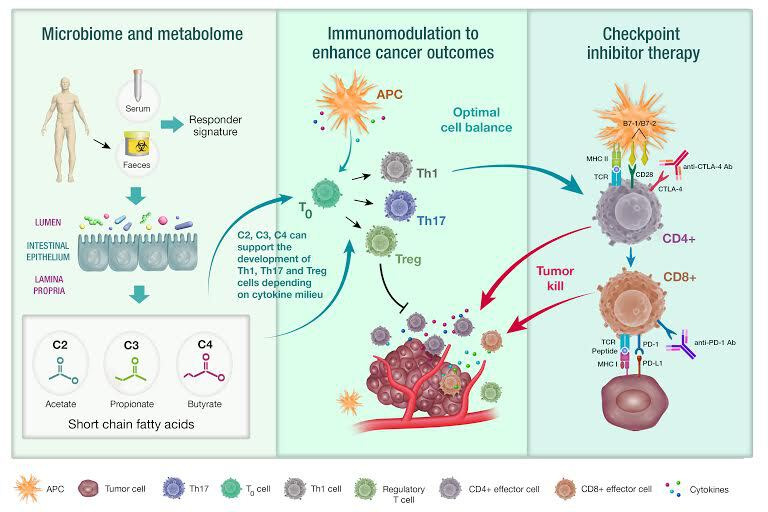Figure 1.

Microbiome-derived metabolome as a predictor of response to cancer immunotherapy. Responses to checkpoint immunotherapy have been associated with a diverse fecal microbiome. Short-chain fatty acids, including acetate (C2), propionate (C3) and butyrate (C4) are products of bacterial fermentation of dietary fiber and are known to induce T cell differentiation (T0). The serum or fecal microbiome-derived metabolome can quantify the metabolic products of microbial communities and could be used as a predictive biomarker for identifying long-term responders to checkpoint immunotherapy (right panel). Short-chain fatty acids can promote both effector and regulatory T cell subsets, depending on the cytokine and immunological milieu (middle and right panel). Optimal conditions for checkpoint inhibitor therapy to facilitate tumor cell killing include increased T effector cell to Treg cell ratio.
